MercoPress. South Atlantic News Agency
Stories for March 8th 2012
-
Thursday, March 8th 2012 - 23:51 UTC
Put the islanders first: key to the Malvinas/Falklands dispute
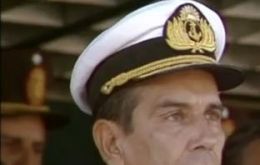
By Robert Cox (*) - Charleston, South Carolina - The misbegotten war over the Islands that need not be named has reversed the concept that war is a continuation of politics or diplomacy by other means. The conflict continues in political and diplomatic terms in Argentina and in Britain. Lost in the clamour is the key to the solution: the interests of the native Islanders.
-
Thursday, March 8th 2012 - 09:42 UTC
Brazil has become the sixth-largest economy in the world overtaking the UK
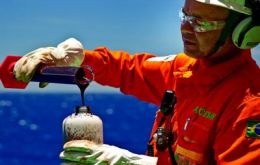
Brazil has become the sixth-biggest economy in the world, the country's finance minister announced. The National Institute of Economic and Social Research (NIESR) and other economic forecasters also said that Brazil had now overtaken the UK.
-
Thursday, March 8th 2012 - 09:35 UTC
BBC documents reveal French double role during the Falklands conflict
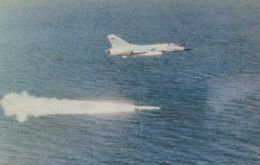
In his memoirs, former UK Defence Secretary Sir John Nott describes France as Britain's “greatest ally” during the Falklands War. However, formerly secret papers and other evidence seen by the BBC show that was not the full story. Before the war, France sold Argentina's military junta five Exocet missiles.
-
Thursday, March 8th 2012 - 06:42 UTC
Spanish King rings Cristina Fernandez to cool YPF taking over campaign
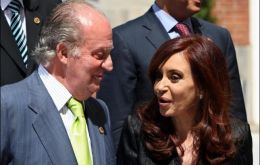
Spain’s Foreign Secretary Manuel Garcia Margallo admitted there is great concern in Madrid over the situation of Repsol-YPF in Argentina, which is questioning the oil corporation for not having invested sufficiently or paid sufficient taxes, and revealed that King Juan Carlos has been on the phone with President Cristina Fernandez.
-
Thursday, March 8th 2012 - 06:33 UTC
Argentine veterans insist with identifying remains of 123 comrades buried in Falklands

Argentine veterans from the 1982 Falklands/Malvinas war with Britain reiterated on Wednesday a request for the identification of 123 unknown comrades buried in the Falkland Islands.
-
Thursday, March 8th 2012 - 06:26 UTC
Poor marks for Argentina in the annual report on money laundering activities

Argentina became an important destination for money laundering activities in 2011 and is now part of a list including 66 nations that the US State Department says are “jurisdictions of primary concern.”
-
Thursday, March 8th 2012 - 06:21 UTC
Chavez will return home from Cuba next week, says Colombian president

Colombian President Juan Manuel Santos Venezuela's Hugo Chávez will return home next week from Cuba where he is recovering from surgery to remove a cancerous tumour.
-
Thursday, March 8th 2012 - 06:10 UTC
Mexico’s tycoon Slim world’s richest man for a third consecutive year
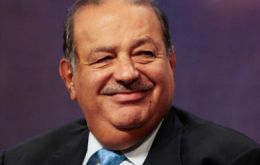
Mexican tycoon Carlos Slim, who on Wednesday topped the Forbes rich list for a third consecutive year with a fortune of 69 billion dollars, invests widely as he seeks to expand his massive telecoms empire.
-
Thursday, March 8th 2012 - 06:06 UTC
Brazilian surprise: basic rate down to 9.75%, lowest in years
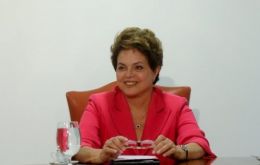
Brazil’s Central bank on Wednesday surprised analysts by accelerating the pace of interest rate cuts, bringing borrowing costs to 9.75%, below 10% for only the second time on record as it seeks to revive growth.
-
Thursday, March 8th 2012 - 01:37 UTC
Argentina blasts EU and describes Trade spokesperson statements as “false”
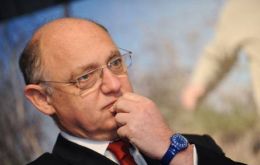
Argentina categorically rejected ‘false’ statements from the EU Trade spokesperson relative to a clarification request to Argentina, allegedly not replied, involving relations of the UK with Buenos Aires and also questioned the EU ‘silence’ on the Malvinas sovereignty question.
